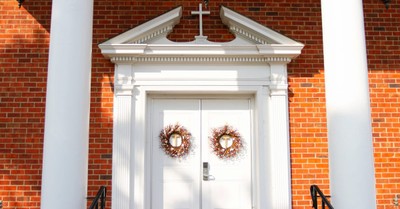What Would You Do with $1.6 Billion?

The controversy over the death of Jamal Khashoggi continues to grow. Hurricane Willa has become a Category 5 storm and will strike Mexico late tonight.
Meanwhile, Americans have also been paying attention to a news item closer to home: tonight’s Mega Millions drawing is worth $1.6 billion, the highest total in US lottery history. The jackpot could go even higher between now and then, perhaps surpassing $2 billion.
Right now, people across the US are wondering what they would do with $1.6 billion (the cash payout is $904 million). A stack of 1.6 billion dollar bills would reach more than one hundred miles into the atmosphere, three times higher than commercial jetliners. It would cover 6.4 square miles in area.
It’s the classic get-something-for-nearly-nothing dilemma. A Mega Millions ticket costs $2. The payouts are so enormous that Americans spent $77.7 billion on lottery sales in fiscal year 2018, up about $5 billion from the previous year. In 2016, lottery ticket sales eclipsed what Americans spent on movies, video games, books, music, and sports tickets–combined.
However, your odds of winning the jackpot are one in 302,575,350. You are 2,649 times more likely to die from a lightning strike.
Is materialism bad for us?
The lottery is classic Western existentialism at work: most winners spend their money on themselves. One couple bought their dream home, other properties, and a Porsche. The husband also made a record with his college band. Six years later, every penny of their fortune was gone.
Another winner spent $5.4 million on gambling in Atlantic City. After losing it all, she is penniless and lives in a trailer park. Yet another spent all her winnings on luxury goods and has nothing left.
Materialism has been linked to depression, social anxiety, decreased well-being, lower life satisfaction, and compulsive and impulsive spending. The failure of money to buy true happiness shows that the Bible is right to warn us: “Keep your life free from love of money, and be content with what you have” (Hebrews 13:5).
Paul noted: “Those who desire to be rich fall into temptation, into a snare, into many senseless and harmful desires that plunge people into ruin and destruction. For the love of money is a root of all kinds of evils. It is through this craving that some have wandered away from the faith and pierced themselves with many pangs” (1 Timothy 6:9-10).
Jesus has the final word: “Do not lay up for yourselves treasures on earth, where moth and rust destroy and where thieves break in and steal, but lay up for yourselves treasures in heaven, where neither moth nor rust destroys and where thieves do not break in and steal. For where your treasure is, there your heart will be also” (Matthew 6:19-21).
Why are we so materialistic?
Given all the dangers of materialism, why are so many Americans still so materialistic?
Consumer spending is 68 percent of the US economy. Such spending is driven by marketers who persuade us that we need what they offer. They do this by connecting our sense of personal success and significance to what we own, using our 24/7 media-driven culture to sell us their goods and services.
There’s an even deeper issue at work, however.
Western civilization began with the ancient Greeks. They taught us transactional religion through which we placate the gods through sacrifices and prayers so they will give us what we want. Religion is thus measured by prosperity–the more we please the gods, the more they will please us.
From then to now, it’s been conventional wisdom in Western culture that prosperity is based on possessions.
“Money is both a test and trust from God”
My point today is not to argue the opposite. If the material world were intrinsically evil, the Son of God could not have taken on flesh and remained sinless.
Luke 8 tells us of “many” women who were part of Jesus’ band of followers and who “provided for them out of their means” (v. 3). An early believer named Joseph was so generous with his wealth that he was given the nickname “Barnabas,” which means “son of encouragement” (Acts 4:36). Dorcas (Acts 9:36), Cornelius (Acts 10:1-2), and Lydia (Acts 16:14-15) were also known for their generosity.
Now God invites us to emulate them by using our means as means and not ends.
Whether you win tonight’s lottery or not, the fact that you are reading these words via a computer or mobile device means you’re among the wealthiest people in human history. However, since “the earth is the Lord‘s and the fullness thereof” (Psalm 24:1), all you own is actually owned by its creator.
You are a “steward” or manager of your Lord’s possessions. His word is clear: “It is required of stewards that they be found faithful” (1 Corinthians 4:2). “Found faithful” can be literally translated as “discovered to be trustworthy.” Rick Warren notes: “Most people fail to realize that money is both a test and trust from God.”
Eugene Peterson on death and resurrection
Eugene Peterson died yesterday. Author of more than thirty books, the Presbyterian pastor was best known for The Message Bible. He famously described the Christian life as a “long obedience in the same direction.”
In his memoir, Peterson made a statement I invite you to read slowly: “We practice our death by giving up our will to live on our own terms. Only in that relinquishment or renunciation are we able to practice resurrection.”
Have you given up your will to live on your own terms?
For more from the Denison Forum, please visit www.denisonforum.org.
The Daily Article Podcast is Here!
Publication Date: October 23, 2018
Photo Courtesy: Sharon McCutcheon/Unsplash



















